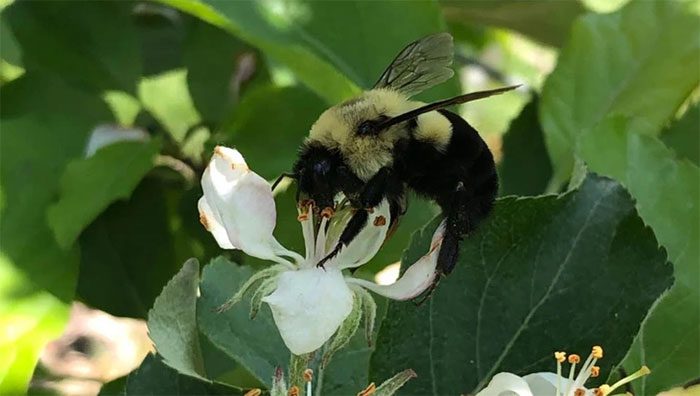The lead author of the study, Ms. Sabrina Rondeau, reported that she accidentally discovered the remarkable underwater survival ability of wasps while conducting experiments for her Ph.D. thesis.
Initially, the aim of the research was to examine the impact of pesticide residues in the soil on the species of queen wasps. During the experiments, Rondeau inadvertently introduced water into a container holding several wasps; however, these wasps survived after being “submerged” in water.

An Eastern wasp collecting nectar on a crabapple flower – (Photo: Nigel Raine/CNN).
Further experiments were conducted to investigate this phenomenon. Specifically, researchers placed 143 hibernating queen wasps in tubes with different conditions, including tubes without water, tubes with just enough water to submerge them, and completely submerged tubes for periods ranging from 8 hours to 7 days.
The results showed that 81% of the queen wasps completely submerged survived after 7 days, then continued to live an additional 8 weeks under normal dry conditions.
Ms. Rondeau assessed the survival of these important pollinators as “encouraging,” particularly in the context of the alarming decline of bee populations worldwide.
Co-author Nigel Raine from the University of Guelph (Canada) noted that the study has shed light on the challenges faced by insect species, especially ground-nesting or hibernating wasps. These challenges include global warming leading to more frequent and severe flooding in many regions around the world.
Despite the promising underwater survival ability, Ms. Rondeau emphasized the necessity for further and broader research to determine the prevalence of this trait among other wasp species, as this study focused solely on the common Eastern wasp found in North America, known for its stronger characteristics compared to other species experiencing population declines.
The study was published in the journal Biology on April 17.


















































